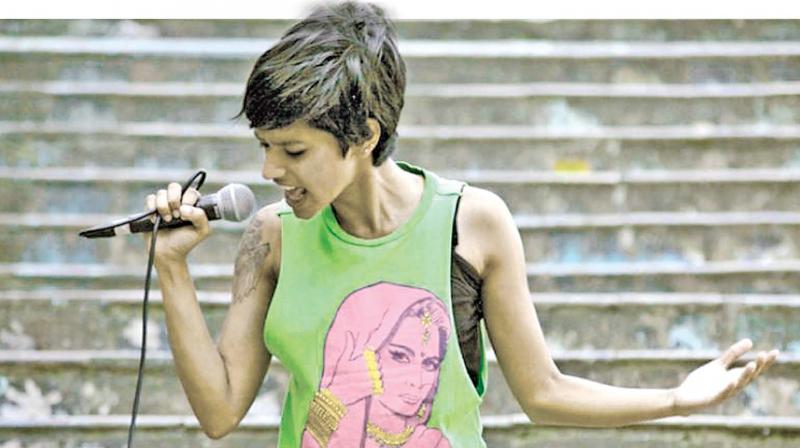Music must have social relevance
Taru is also the co-founder of a movement that spreads awareness using music and multimedia art forms.

A young woman rapping to express her discontent about TN’s political situation went viral a while back. Sofia Ashraf shot to fame with all news channels flashing a slender young woman, belting out lyrics that express her anguish. Today she has become a constant fixture on news debates on social issues, especially those that are about gender justice.
Young musicians are today taking to music and art to convey meaningful messages and bring about awareness and reform on social issues. DC indulges in a talk with them.
There have been many instances like this in Tamil Nadu where once a folk singer, who composed his own song against a political leader, even courted arrest. But singing a tune to bring about larger change seems to be fast catching up among the younger crop of musicians who are using their brand of music to espouse social causes.
Vociferous and opinionated, Taru Dalmia uses a combination of Indian reggae/ dancehall and poetry with his historian background to pen lyrics on issues like homelessness, slums and deprivation and poverty. “Art and culture by default should have social relevance”, he says. “It’s not always political if there is a mainstream culture that ignores what is happening in society. But then by excluding important issues, whose voice is it? Whose idea should it be to decide how society should be organised or how it’s progressing collectively?” he questions.
Taru is also the co-founder of a movement that spreads awareness using music and multimedia art forms. This collective is dedicated to producing documentary films and musical collaborations at the grassroots level. “We travel to different parts of the country and collaborate with revolutionary singers, who are often associated with specific movements. It was a tremendous learning experience for us as creative folk and has allowed us to step out of our own social context and forge connections with struggles in other parts of India”, he adds.
Along with his group of like minded individuals, Taru, has toured Manipur, Meghalaya, and Assam. Groups like Taru’s also easily forge international collaborations, thanks to their out-of-the-box thinking. They have also worked alongside Sizzla, a Jamaican musician.
Born into a traditional South Indian family, Sofia Ashraf has been labeled many things over the years—protest rapper, burqa rapper and a fierce feminist. “So, it all started in Chennai,” she reminisces. “I’m a writer and I like writing my own songs. When you write your own, you usually write from your experiences, right? Back then I was a Hijabi, so I use to write about my identity of being a Hijabi” explains, Sofia.
Sofia has also posted a Facebook live video of her singing a song, “My vote is not for you”, in front of J Jayalalitha’s residence in the past. Sofia’s “Kodaikanal Won’t” rap song went viral with the video setting close to 80,000 views. The song tells about a big corporate’s part in poisoning the lake and forest of the hill station Kodaikanal with mercury.
“I haven’t faced any criticism so far from the opposition of being a women rapper and it was quite the opposite in fact in the rapper industry because it does not have enough women representations. From my personal experience all the rappers were nice to me; they get very excited when they see a women rapper in the crowd. I have been to rap circles in Bhopal and Mumbai and they have welcomed me”, said Sofia.
Sofia has been passionate about writing her own songs since childhood. According to her, rap is music with poetry and a sort of a lyrical prose. “Art should come from some one’s personal opinion or experience— rap is an angry medium and it also has a history of rebellion, it’s a very subversive medium”, Sofia says. It is a very powerful tool to voice out social issues. By spreading messages through rap, Sofia feels that it will create awareness among the public and will reach a large number of audience.
Renowned musician Dharan Kumar says, “A rapper uses his real life story as a content to bring out music that might include a dark side of their life. So, when they put it as lyrics along with rap and hip-hop it has a powerful impact and reaches the youngsters better”.

